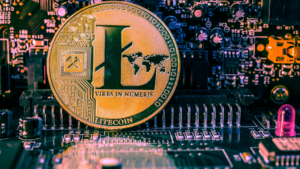Ever since the Ethereum-based privacy-focused mixing service, Tornado Cash was targeted by the US Foreign Assets Control’s (OFAC) office, tensions have been flaring up in the cyrptoverse; and with good reason.
The war for digital human rights is underway.
The heavy-handed OFAC move was prompted by allegations of North Korean hackers using the service, setting regulators on a direct collision course with crypto users, developers and human rights advocates.
This year has been especially important due to increasing financial censorship in Western countries. In fact, following worrying events in Canada in February, whereby Canadians were subjected to politically-motivated financial censorship by their Government, privacy concerns have increasingly taken the limelight.
But that’s not the only reason for this increased attention on privacy, as it also happens to be a technical pre-requisite for good money. Indeed, the dollar or euro you hold in your hand is assigned the same value as any other dollar. This is called fungibility. A cash recipient cannot be bothered with the transaction history of the money he is handed in a transaction, otherwise money cannot move freely or efficiently. If money isn’t fungible, it fails as money.
This is well-known in traditional finance.
Cryptocurrencies aren’t going away. Buy Bitcoin & Litecoin here.
Privacy makes money
Good money depends on a set of tenets that prop each other up – just like a scaffold rests on each layer beneath it for support, else the entire structure collapses.
As such, privacy is necessary for fungibility and in turn, fungibility is necessary for money to function. However, if distinct money units have a transparent history, there is a risk they will be valued differently, or ‘tainted’. If a bitcoin or fiatcoin (stablecoin) was flagged during its transaction history for passing through the hands of an SDN-listed person, company or software, then people will either auction it off at a lower price or refuse to accept it altogether.
Bear in mind, this problem has already been solved with cash, such that the value of each physical piece of paper ($10 etc.) is fully interchangeable with another regardless of where it’s been.
A worrying precedent
Following the disgraceful arrest of the Tornado Cash Developer in early August, OFAC is setting a precedent whereby crypto services could be obliged to block not only wallets that transacted directly with Tornado Cash, but also second and third-hop wallets further down the chains through which ‘tainted’ tokens passed. This would be a form of guilt-by-association, opening the door for deep fragmentation of money due to the associated regulatory risks.
If regulators continue to pursue this path, they will undermine decades of basic financial precepts that are already agreed upon. This begs the question: are regulators working to replace a model characterised by individual freedom, to one characterised by surveillance? If that’s the case, should the public be worried about the cosy relationship between central banks and mega corporations and their professed plans for CBDCs?
Banning crypto mixing services also fuels demand for replacements, incentivising crypto developers to work around this encroachment on basic human rights. Thankfully, Litecoin developers foresaw this problem and came up with a workaround. In May 2022, developers released a privacy-layer called MimbleWimble extension blocks. Briefly, instead of passing coins through mixing services, MWEB allows Litecoin senders to encrypt the number of coins to be sent using ‘blinding factors’, obfuscating the sending and receiving addresses.
It’s a great time to talk about Litecoin MWEB & what capabilities it offers such as privacy through confidential transactions, fungibility, & scalability with cut-through. pic.twitter.com/hhnVv2elAJ
— Shan Belew Ⓜ️🕸 (@MASTERBTCLTC) August 23, 2022
In essence, Litecoin developers have a developed a workaround for today’s privacy concerns.
Privacy as a human right
Beyond basic functionality and fungibility, there are a number of personal, social, political and strategic motivations for well-meaning, decent people to seek privacy.
Indeed, privacy is necessary for an open society in the digital era.
It is not secrecy. A private matter is something one does not want the entire world to know – a secret matter is something one does not want anybody to know. Privacy is the power to decide what to reveal to the world.
Since we desire privacy in our open society, the only people who need to know information about a transaction are the parties involved. As such, personally identifying information is not salient when purchasing groceries, catching a bus or buying any other item. Through cryptography, we need not expect governments, corporations or other large faceless entities to ‘grant’ that which is ours by birth right.
Privacy is not something that is there to be given or taken away. When that precedent is set, abuse is certain, as is the case in Communist-run countries like China or North Korea.
But we must actively defend our right to privacy if we seek to have any, and Litecoin is at the forefront of this defence.
Privacy for strategic good
In response to a tweet from Jeff Coleman, many people, including Ethereum co-founder Vitalik Buterin, said they would use Tornado Cash to send funds to Ukrainian causes in order to avoid possible interception from Russian authorities, or Western authorities worried about the funds falling into the wrong hands.
At the start of the Russia-Ukraine conflict, donations to Ukraine quickly topped $4 million (in BTC), which helped to circumvent blocking of funds on Patreon due to terms of service violations. However, these funds were only pseudonymous, and are limited in scope for now. But should the need arise again, publics could donate to a cause without putting themselves at risk of being targeted by both internal and external threats.
Privacy for business
Any financier will attest to the explicit requirement for privacy in business transactions. It is in fact, a crucial element in financial trading activities.
In 2015, when Wall Street institutions started exploring blockchain-based settlement and clearing systems, they refused to build on Bitcoin because, at that time, the data was too public. Investors do not want the entire market knowing their trades lest it allow their competitors to front-run them or know their positioning.
As the focus on privacy increases through a mass realisation of its absolute necessity, awareness about what data we reveal about ourselves is set to grow. Still, regulators are unlikely to pull back what appears to be an open attack on basic human rights. The game of cat and mouse is set to drive novel obfuscation methods by the amorphous presence of rogue Robinhood-like coders. In the meantime, digital human rights advocates can only scrutinise regulators’ intentions, turning up the heat on these public servants who may not be working in the best interest of the public they’re sworn to protect.
Join the telegram channel for updates, charts, ideas and deals.
Did you like the article? Share it!


